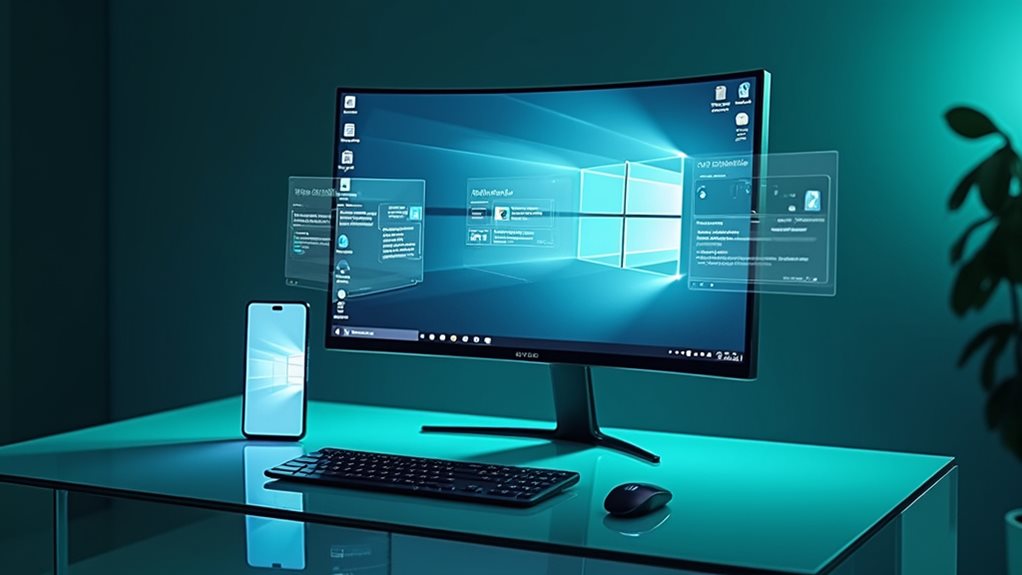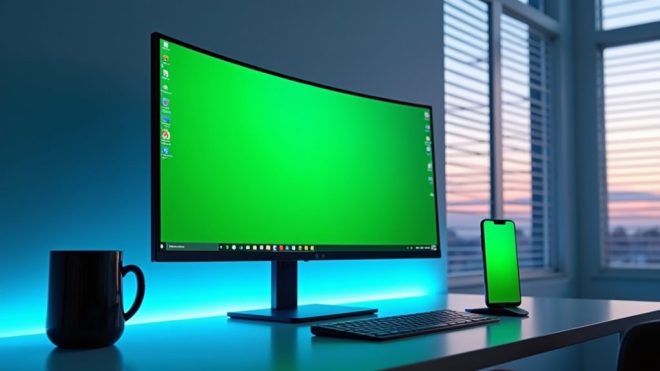Android Heads to PCs in 2025: A Game-Changer? Google is set to launch Android on PCs by 2025, merging mobile and desktop experiences like never before. This bold move, announced by Rick Osterloh at the Snapdragon Summit, marks a significant shift in tech, allowing users to run Android apps natively on laptops and desktops. With Qualcomm’s Snapdragon chipsets powering these devices, expect optimized performance and a snazzy interface. How will traditional PC aficionados react? Stick around to find out more.

In an exciting move, Google has announced that Android will officially land on PCs in 2025, merging the mobile domain with desktop computing. This transformative announcement, made by Google Senior Vice President Rick Osterloh at the Snapdragon Summit, marks a significant shift in the tech arena, blurring the lines between smartphones and PCs. Google SVP Rick Osterloh confirmed plans to bring Android to PCs and laptops.
With the partnership between Google and Qualcomm and the promise of a unified operating system, this bold initiative aims not only to reshape how users interact with devices but also to challenge the long-standing dominance of Microsoft Windows in the PC market. The plan? To combine Android and ChromeOS into a singular, cohesive operating system that will run on a variety of devices, including laptops and desktops. For everyday users, this means they can finally run their favourite Android apps natively on PCs without the hindrance of virtual machines. Imagine a world where your go-to mobile apps work seamlessly on a crisp desktop screen—this is not science fiction, but a concrete reality on the horizon.
Qualcomm’s CEO Cristiano Amon heralded this collaboration as “incredible,” describing it as a realization of mobile-PC integration vision. Android PCs, powered by Qualcomm’s Snapdragon chipsets, will employ ARM architecture’s newfound power efficiency, possibly redefining the current framework of Chromebook hardware traditionally dominated by Intel processors. Google is working on a Snapdragon-powered Android desktop as part of this collaborative effort.
As tech experts suggest, the fusion of hardware and software is the key to optimized performance, and expectations are high.
A particularly tantalizing feature of the upcoming Android OS for PC is the integration of AI capabilities, complete with Gemini models and Google Assistant. Think of it as not just a digital assistant at your fingertips but a powerful ally in enhancing productivity.
With Android 16 leading the charge, users can expect convenient desktop features, external display support, and improved window management that align impeccably with everyday PC use cases. The world of Android gaming is also on the brink of an upgrade; Google Play Games exited beta in September 2025, sporting an impressive catalogue of over 200,000 titles available in 130 countries. This solidifies Google’s investment in bridging the Android gaming ecosystem with the broader PC community.
The implications of Android on PCs extend beyond mere convenience—they challenge the status quo of the desktop computing environment. Google’s efforts might usher in a new era that encourages developers to create cross-device applications, promoting an interconnected experience across smartphones, tablets, and PCs.
But as optimistic as these developments are, one cannot help but wonder: How will existing PC users respond to this upheaval? Will they embrace the elegant synergy of mobile and desktop, or resist this unfolding narrative?
Final Thoughts
A New Era for Android
In 2025, Android is set to make its debut on PCs, enhancing cross-device integration and challenging the dominance of Windows and macOS. This move has sparked excitement among tech enthusiasts, raising questions about whether it will be a pivotal moment or just another operating system. As Google continues to innovate, the landscape of personal computing may undergo a significant transformation.
If your company is looking to navigate this changing environment, the Emotional Computer team is here to help you leverage these developments for your advantage. Don’t miss out on the opportunities this shift could bring. Click on our contact us page to get in touch and discover how we can assist you!

